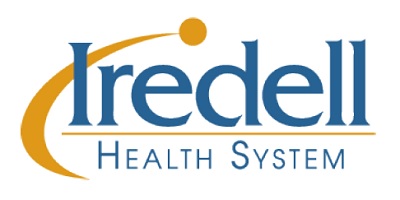
Special to Iredell Free News
When you start to feel under the weather and cannot seem to kick the cold, where is the first place you go? Many people will probably say their family doctor or primary care provider; however, others may not have a primary care provider you regularly visit.
Having a primary care provider can benefit you in several different ways. They can help you stay healthy, treat you when you feel sick, catch illnesses early, and help you find specialized care when needed.

“It’s important to have a primary care provider because everyone needs someone who they can trust as their medical resource and feel comfortable going to for all of their health concerns,” said Jodi N. Stutts, a primary care provider at Iredell Family Medicine, which is part of the Iredell Physician Network.
So, what exactly is a primary care provider?
A primary care provider is a trusted medical professional who helps patients manage their day-to-day health needs.
“We are your first go-to when it comes to non-emergency health concerns. We can diagnose, treat, and prevent several conditions,” said Stutts.
There are several types of primary care providers. You can choose the type of primary care provider you wish to visit according to what suits your needs and aligns with the specific period of your life best.
Primary care providers include:
♦ Family medicine providers – provide care for the entire family, both adults and children
♦ Internal medicine providers – see adults patients, typically for chronic, long-term
illnesses
♦ Pediatricians – care for infants and children
♦ Obstetricians/Gynecologists – focus on women’s health
♦ Geriatricians – provide care for elderly individuals
A primary care provider does not have to be a doctor. They can be a physician assistant (PA) or a nurse practitioner (NP), both of whom can offer excellent primary care services. You can visit your primary care provider to treat chronic, or long-term illnesses, like diabetes, hypertension, high cholesterol, depression, anxiety, insomnia, and arthritis, among others. A primary care provider is also necessary for preventive care and screenings, health maintenance and vaccinations, medication refills, treating acute illnesses like a sinus infection, and for other types of everyday health concerns.
If you are looking for a more personalized medical experience, a primary care provider is the perfect option for you, as you will receive treatment from a provider who knows your medical history.
“We tend to see multi-generations. A lot of times, we’re taking care of the grandparents, the parents, and the grandkids, so we get to know the family and certain health issues that may be occurring throughout the family,” said Stutts.
“We really get to know our patients very well, and it helps us evaluate, treat, and understand the issues or concerns they may have,” she added.
Familiarity with the same provider helps to personalize your care and help you feel more comfortable when sharing your health concerns.
“For example, let’s say you have had multiple urinary tract infections (UTI) in the past few months, and each time you have another UTI, you visit a different urgent care. If instead, you visited the same primary care provider for each UTI, they would know of the reoccurrence and could determine if something else, more serious, was going on,” said Stutts.
“In that way, having a primary care provider allows less room for error,” she added.
Scheduling regular appointments with the same provider and building a relationship with them is crucial because they know you best. So they can provide the best care for you.
Additionally, a primary care provider can aid in your preventive care. At an annual check-up or physical, and through routine screenings, primary care providers may spot health problems before they become serious.
“A primary care provider will sit down with you during your visit and evaluate your unique situation, what your risks are, and any other healthcare concerns you may have,” said Stutts.
“We look at the patient and the family history to see if they have any risks for developing certain illnesses and what is most important for them to manage for their specific lifestyle,” she said.
Though your primary care provider can help you overcome various mental and physical illnesses, more severe health conditions may require a specialist.
If the situation arises when you need to visit a specialist, your primary care provider can point you in the right direction.
“We have the chance to speak with you, and then based on your symptoms and our evaluation, we can call a specialist in our area that we are familiar with and we think would be a good fit for your specific condition,” said Stutts.
A primary care provider can find the best referral for you based on your symptoms and help you set up an appointment.
According to Stutts, without the direction of a primary care provider, patients may visit the wrong specialist for their condition.
“If you have joint pain and think it is arthritis, you will likely visit an orthopedic specialist. However, you did not know you had an inflammatory disorder that was causing the joint pain. In that case, you would be better visiting a rheumatologist,” she said.
A primary care provider is your trusted healthcare advocate and someone you can go to for a variety of physical and mental issues — they are your one-stop-shop for health concerns. To live a long, healthy life, it’s imperative to see a primary care provider regularly.
“If you do not have a primary care provider, establishing one at any time is always a good idea. It’s nice to have someone you can go to for trusted health advice and care,” said Stutts.
Stutts practices at Iredell Family Medicine located at 544 Brawley School Road in Mooresville. If you would like to establish Dr. Stutts as your primary care provider or make an appointment with her, please call Iredell Family Medicine at 704-360-5190. To see a list of other primary care providers, visit www.iredellphysiciannetwork.com.
About Iredell Health System
Iredell Health System includes Iredell Memorial Hospital; Iredell Mooresville; Iredell Home Health; Iredell Wound Care & Hyperbaric Center; Community and Corporate Wellness; Occupational Medicine; the Iredell Physician Network and more. Iredell Memorial Hospital is the largest and only nonprofit hospital in Iredell County. The comprehensive healthcare facility has 247 beds; more than 1,700 employees; and has 260 physicians representing various specialties. Centers of excellence include Women’s and Children’s; Cardiovascular; Cancer; Surgical Services and Wellness & Prevention. The Health System’s newest campus, Iredell Mooresville, is home to the area’s only 24-hour urgent care facility, as well as an ambulatory surgery center, imaging center, rehabilitation services, and physician practices. The mission of Iredell Health System is to inspire wellbeing. For a comprehensive list of services and programs, visit www.iredellhealth.org.



